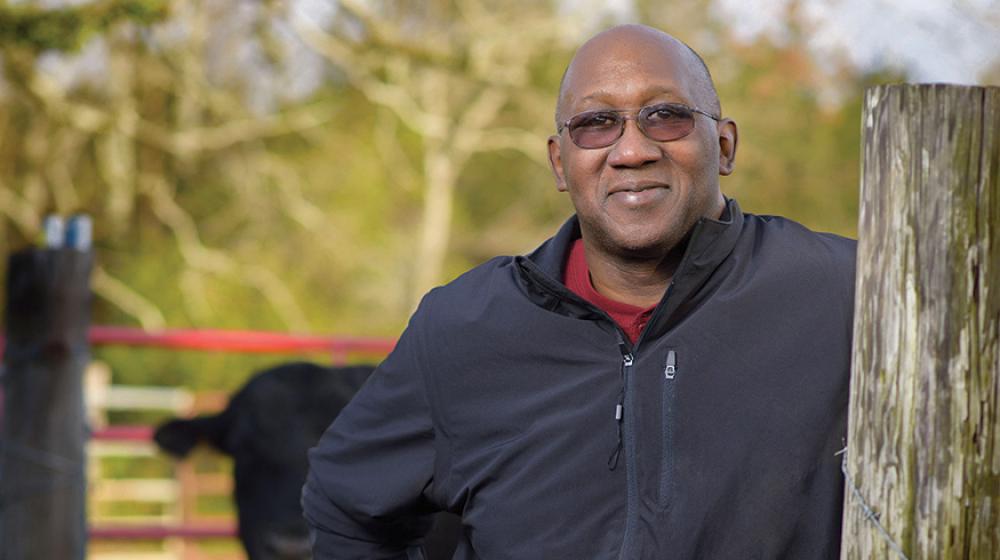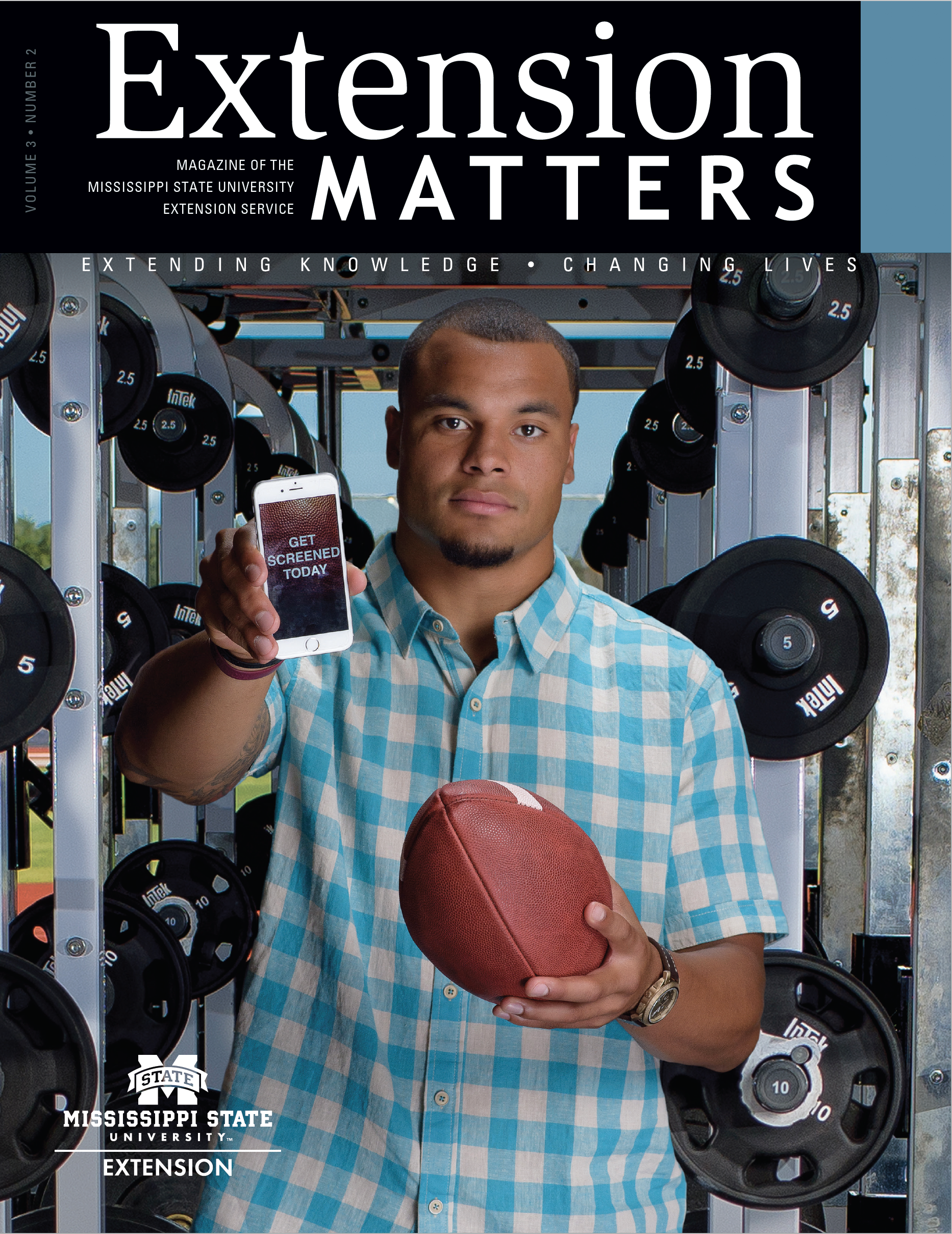Offering Something Different

Leroy Alford, cattle producer
Extension helps veteran transition to a new role
The Mississippi State University Extension Service was a constant presence for Leroy Alford when he was growing up in Clay County. Now, Extension is again playing a role in his plans as he transitions toward moving back home.
The retired U.S. Air Force lieutenant colonel and MSU graduate says his 90-acre organic beef cattle operation is “in its infancy stages.” Alford is required to implement agricultural practices—such as cross fencing and planting grasses that naturally improve soil—to meet the requirements for livestock production under the U.S. Department of Agriculture National Organic Program.
With the help of Extension and the Natural Resources Conservation Service, he is gradually checking off the items on that list while he continues living in Maryland, for the time being.
“I’m usually down there at least twice a month for 3 or 4 days at a time,” Alford says. “The land I’m using has been out of production for several years. I had to clear overgrowth on some of the land, and a certain amount of time has to pass before the property will be in a condition to support the project. The process to have a certified organic beef cattle farm is a lengthy one, but I’m moving toward that point.”
Alford, who bought land neighboring his parents’ in 1998, has a lifelong tie to Extension that began with his mother, Louise Alford. He explains that she was an aide to former Clay County Extension agents Bessie Johnson and Wes Lancaster in the late 1960s and early 1970s.
“Wes worked with me when I participated in land-judging contests in high school,” Alford recalls. “He was in charge of the local 4-H club, which I was in. We learned a lot about different types of soil and how factors such as slopes and weather affect soil permeability. We had to learn how to identify different types of trees. There was a county fair every year, and we raised pigs and other livestock that were sold there.”
Delivering 4-H programs to young people and services to agricultural producers remain important Extension objectives today. Alford has noticed the ability of Extension agents and scientists to adapt to changing times and circumstances.
“I think, now, Extension has more resources and publications available that can be quickly shared with residents, and this knowledge improves communities,” he says. “Agents are now more proactive and hands-on in addressing agricultural and practical needs of their clients.”
Alford himself is once again a client, having turned to Extension agent BJ McClenton for advice on how to make his pastureland and dozen cows fit the mold of a certified organic beef farm.
“BJ has worked with me for the past 2 years, providing input and technical information I was able to use,” Alford confirms. “He’s helped me on everything from pasture management to what weight range my livestock should be in and what time of year they should be there. He has a lot of resources and contacts with the NRCS that we have networked with to find out about technical and financial assistance programs for producers, veterans, and beginning minority producers.”
One of the NRCS programs is the Environmental Quality Incentives Program, or EQIP. The program helps producers implement practices that improve and conserve soil, water, plant, animal, air, and other natural resources.
“Our job is to provide the education for producers so they can use NRCS resources in the best way,” McClenton says. “When Leroy first contacted me about marketing advice for his cattle, I wanted to make sure he was keeping breeding seasons short and getting his livestock on a regular healthcare and parasite-control program. We worked on establishing a consistent forage and weed-control program that was suited to the pasture soil conditions.”
At first, the two mainly exchanged emails, but McClenton has met with Alford more often in person as he continues toward his goal.
“The certification process is what makes going organic so tedious,” McClenton explains. “Organic means no pesticides or chemicals on the land for several years prior. No antibiotics, chemical dewormers, or external parasite control measures are allowed on the cattle. The space has to be completely pure.
“I like the fact that he is coming back home to put his family’s property into production using resources we offer through our programs,” McClenton continues. “Not many people, especially absentee landowners, are willing to take that kind of initiative, but, in the last year, he’s been coming back more often.”
Alford expects to cater to a niche market once he is officially open for business.
“I’m looking at this as supplementing the income I already have. I have neighbors who do ranching full time, and I have no plans on anything that large,” he says. “I think there is a small market available, and I hope to eventually reach it.”


